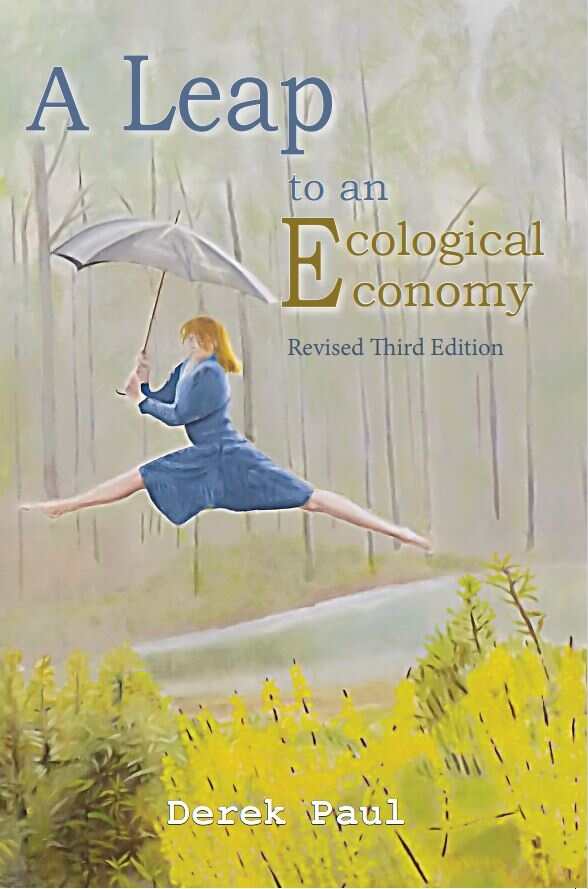
A Leap to an Ecological Economy
Revised Third Edition
Issuing an urgent call to action, A Leap to an Ecological Economy proposes a new economic model that puts the planet first.
Derek Paul’s book A Leap to an Ecological Economy seeks to tackle climate change by laying out a template for a more sustainable economic system.
Proposing an economic model that prioritizes the sustainability of the ecosphere, this book advocates for a complete overhaul of the status quo. It asserts that its model could both increase natural wealth and address the crisis of climate change, with techniques such as weaning off fossil fuels and implementing more widespread carbon capture. Its proposals include afforestation, organic farming, and emissions-free transportation. It also encourages initiating constructive talks with policymakers and at the community level, with suggestions for legislation, the reinvention of industries, and new practices and instruments to spark social change.
Broad in scope and bold in its thinking, the book also suggests scrapping incentives for destroying the planet to replace them with new rewards. It indicts capitalism for treating natural resources as limitless and the planet as though it can absorb an endless amount of pollution. Focused on the big picture, it asks people the world over to transform their thinking, beginning with their language; it redefines some terms (like “investment”) to this end on its own.
The book’s well-organized, topical chapters progress in a logical fashion, first identifying problems with traditional economic models before moving on to proposed solutions. They include a primer on the creation of money as well as one on the centrality of capital. One delineates the ways that an ecological economy would differ from the current system. Still, there’s some jumping between topics, as with leaps from coverage of cheap labor to full employment and recessions. And the book presupposes some prior knowledge of its subject, as when it decries planned obsolescence without introducing that subject in depth. Further, topics including the military-industrial complex, big agribusiness, the wealth gap, and the limits of GDP as an economic index are covered but rushed through, while some of the book’s suggestions, as with its instructions for “all governments” worldwide, “especially national governments and state or provincial governments in geographically large jurisdictions,” which do not do enough to acknowledge the practical challenges of achieving such universal buy-in.
The book is most compelling when it comes to outlining the threat of climate change. It includes extensive citations, several appendixes, and bibliographies and notes at the end of each chapter to bolster its credibility. And it builds to a detailed list of recommendations that recapitulate and refine many of its earlier points.
An urgent call to action, the ambitious ecological text A Leap to an Ecological Economy puts forth a theory for creating an alternative economic model that would put the planet first.
Reviewed by
Joseph S. Pete
Disclosure: This article is not an endorsement, but a review. The publisher of this book provided free copies of the book and paid a small fee to have their book reviewed by a professional reviewer. Foreword Reviews and Clarion Reviews make no guarantee that the publisher will receive a positive review. Foreword Magazine, Inc. is disclosing this in accordance with the Federal Trade Commission’s 16 CFR, Part 255.
